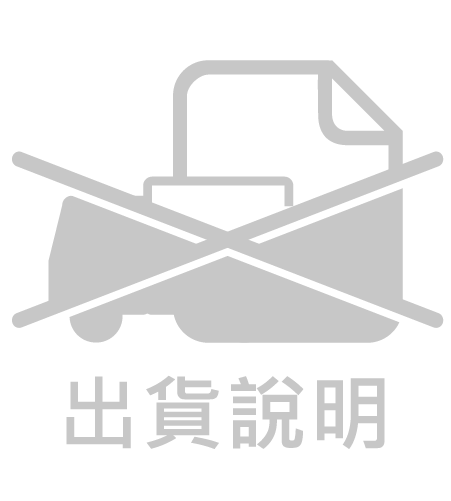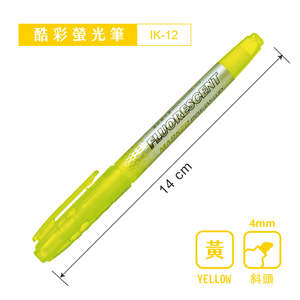〈過剩經濟,我們的貪婪與哀愁〉
2013年10月,導演齊柏林透過他空拍的電影「看見台灣」,讓我們赤裸裸地看到美麗的寶島「福爾摩沙」,因過度的開發,早已傷痕累累,不但海岸線佈滿了消波塊,連山頭也被開墾的東禿一塊、西禿一塊,人心的貪婪,美其名為發展,事實上卻是不斷的噬食著這塊土地,而不論是去年的香蕉還是今年的芭樂,都有生產過剩、果賤傷農的現象,可見不管是過度開發還是生產過剩,都會傷害到這塊土地以及在上頭努力拚搏的人。
所謂的「過剩經濟」講直白一點就是供過於求,其中有一個特點就是商品的「非價值」膨脹,也就是對附加於商品之中的種種非物質成分,比如說品牌、廣告、包裝、運輸等滿足了消費者方方面面的需求,卻掩蓋了原本商品真實的價值,以iPhone為例,照相、造型、限量以及賈伯斯精神早就取代了iPhone是支手機的單純價值,而果粉們皆以身為蘋果的粉絲為榮,既然是粉絲,必也多多少少有盲從與非理性的部分,而類似這樣的非理性積少成多,正應了所謂的需要的不多,但想要的太多,慢慢地就演變成過度消費與製造過剩的問題。
就像土地會反撲一樣,不斷更新與提高規格的iPhone,也從原本的一機難求到目前開始有滯銷的現象,消費者的意識開始和他的荷包一樣清醒,他們開始追求更高的精神價值,甚至有大半的德國人認為,市面上的手機推陳出新過快,因而導致泛濫與電池汙染,許多不更換外殼只提供升級的環保手機應運而生,可見飢餓行銷是無法誘惑一個理性而內心富足的人。
說到飢餓,原本懷石料理的原意是日本僧人為了止飢,將石頭溫熱後放在腹部,與其說是料理不如說是一種體驗,然而如今不論是米其林三星壽司,還是河豚專賣或是由職人所主持的天婦羅名店,都已名列仙班的成為頂級懷石料理,滿桌望去的名貴食材,早已失去了懷石苦修的真義,像這樣名不符實卻冠上美名的,也發生在扔的滿街都是的「共享腳踏車」以及使用環保材質卻因不堪使用,反而得不斷花錢更換的假環保產品上,話說產品本身是無辜的,而發生質變的除了是因為無法貫徹初衷的便宜行事之外,就是商人們只願意短視近利的落實那些操弄人心的廣告行銷策略。
遙想第一次去英國倫敦,如此泱泱大國,人民所使用的3C產品竟然落後台灣一輪,而到餐廳點餐,也是少有套餐,多半是單品單價,全依使用者付費,至於地鐵上的紳士們,不管是隨身的公事包還是腳下的皮鞋,也多半是做工精良,使用多年的皮件,他們惜物而不放縱,務實而不追新,「節制」是一個進步國家的美德。尤其入夜之後,商店多半關門,人們回到家裡過著簡單的居家生活,電視也不像台灣動不動就一百多台,遙控器轉台轉到手酸。曾有個美國友人對台灣半夜還在營業的豆漿店感到不可思議,他說這些用員工熬夜健康所換來的燒餅豆漿,竟然賣得如此廉價與便宜。因此近年來許多國家不只對生產過剩反省,也開始對服務時間過剩開始檢討,別忘了著名的統一超商7-Eleven,成立初期營運時間只有早上7點至晚上11點。
夜晚,FUNDAY 執行長Frankey 從公司九樓俯視松江路上的川流不息,感慨的說: 「這麼多公車,大半幾乎是空車,就算載人也是零零星星的,真是可惜!」其實除了公車外,計程車與備受爭議的Uber也穿梭於其間,再加上捷運,以交通 運輸來說,真的不是不夠,而是太多,此時手機又傳來全台警力過剩,而人事 經費暴增的新聞,看著馬路上的車流如成串螢火,一閃一閃的⋯⋯似乎在訴說 著我們的貪婪與哀愁。
Our Economy: Excess, Greed and Distress
In October 2013, using aerial cinematography in the documentary “Beyond Beauty: Taiwan from Above,” director Chi Po-lin exposed both the natural treasure that is “Formosa” as well as the underbelly of excessive development. The natural beauty of the island is juxtaposed with Taiwan’s industrial scars; damaged coastlines and mountains with their tops torn off from mining activities (all in the name of “development”) are laid bare. In fact, “development” is constantly consuming this land. Whether it was last year’s banana or this year’s guava, there is a phenomenon of overproduction, surplus and destruction, just in the fruit industry alone. Whether it’s industrial exploitation or overproduction, these economic practices will not only hurt the land, but many Taiwanese will suffer as well, especially those who are already struggling.
Put simply, this so-called “surplus economy” is a direct result of oversupply. One of its characteristics is “value-less” add-ons to commodities. These are components attached to commodities such as branding, advertising, packaging, transportation, and so on. While satisfying the desires of many consumers, these add-ons distort the actual value of the original good. Even the iPhone, which was conceptualized in the spirit of simplicity preached by Steve Jobs, has fallen to consumerism’s insatiable lust for more. “iSheep” have blindly and irrationally demanded and bought more and more from their beloved Apple, until now. Irrational desire has slowly evolved into the major problem of excessive consumption, and now overproduction.
Just as the environment has violent reactions to overproduction, the iPhone’s constant updates and model launches have finally exhausted the “iSheep”, who can’t or won’t give anymore. A consumer’s consciousness begins with their wallets, and sooner or later they know when enough is enough. For example, more than half of Germans agree that the mobile phone market is out of control and has resulted in a flood of “used battery pollution.” Now, many eco-friendly options have emerged on the German market. Companies do not replace the outer casing of the phone, but instead provide environmentally friendly upgrades. Thankfully, “Hunger Marketing” doesn’t work on those with reason and a contented heart.
Speaking of desperate hunger, “Kaiseki cuisine” was a term to describe the practice of Japanese monks putting a warmed stone on their stomachs to stop hunger pangs. It’s not actually a “cuisine,” after all. It is a soothing experience for these devotees who sacrifice material pleasures for enlightenment. Today, Michelin Star restaurants serving sushi, blowfish or tempura have taken this “humbling experience” and begun to sell it as “Gourmet Kaiseki Cuisine” to those who can afford it. Ironically, customers sit in front of a table full of the world’s most expensive food to partake in the “Kaiseki experience.” The “Kaiseki experience” has become quite famous and, simultaneously, lost all of its meaning. Let’s not forget the “shared bicycle” programs popping up all over the place. They are equally deceptive, posing as eco-friendly services that use eco-friendly materials. It sounds great, except for the fact that these materials must constantly be replaced. The product itself is innocent enough, but in practice the program is just more wasteful behavior in new “environmentally friendly” packaging. The program promises “green transportation”, yet the industry behind the program uses cheap parts for short-sighted economic reasons, working against its stated goal. “Environmentally friendly” has become nothing more than an empty slogan.
On my trip to London I noticed that the electronics used by locals were many generations behind the ones you see on a daily basis in Taiwan. When I ordered food at the restaurants, there were few “extras” provided. Most meals were priced as single units, not combos, making for simple decisions by the customers. On the subway, I noticed men were sporting well-made leather goods. Whether it was their briefcases or their shoes, these products were made to last for many years. From the outside looking in, the English seem to cherish their belongings, without over- indulging. It seems to be a culture where pragmatism comes before chasing the latest and the greatest. At night, most of the shops close. People generally return to a simple home life and to televisions with far fewer channels to choose from. Temperance, it seems, is the virtue of a truly progressive country. I remember an American friend of mine in Taiwan being beside himself when he saw a soy milk shop open in the middle of the night. He said that the sale of soy milk was a sad exchange for the employee’s health, especially for someone who had to work for so little money. In recent years, many countries have not only examined the problem of overproduction, but they’ve also begun to think about employees’ working hours. Let’s not forget Uni-President’s most famous store, 7-Eleven. Believe it or not, the name actually comes from the store’s original hours of operation, from 7:00 am to 11:00 pm.
One night, as FUNDAY CEO Frankey looked down from the ninth floor on the incessant flow of traffic on Songjiang road, he noted, “There are so many buses and almost all of them are empty… even the ones with passengers only have a few. It’s just sad….” In fact, it’s not just buses, but taxis and the ever-controversial Uber, not to mention the MRT, are all part of the problem. The problem isn’t a lack of transportation, but the fact that there’s too much of it. The oversaturation of services not only exists in the mobile phone market or in transportation, but has even permeated Taiwan’s police force. Now, there are simply too many police officers, and the extra expense will be left to the taxpayer. So, just watch the traffic on the road at night as lights shuttle past, like a string of fireflies. They seem to be signaling to us, hinting maybe, something about our excess, our greed and our impending distress.
















































